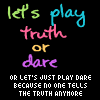Where computers are widespread, they are also a part of education. Computers are used in schools for many applications such as writing papers or searching the Internet for information. Computer skills are also a subject being specifically taught in many schools, especially from adolescence onward - when the ability to abstract forms.
One problematic element of many (though not all) "computer literacy" or computer education programs is that they may resort too heavily on rote memorization. Students may be taught, for example, how to perform several common functions (e.g.: Open a file, Save a file, Quit the program) in very specific ways, using one specific version of one specific program. When a graduate of such a program encounters a competing program, or even a different version of the same program, they may be confused or even frightened by the differences from what they learned. This is one reason why major computer and software firms such as Apple Computer and Microsoft consider the educational market important: The often time-limited computer education provided in schools most often lends itself to rote memorization, creating a sort of vendor lock-in effect whereby graduates are afraid to switch to competing computer systems.
Graduates of computer education programs based around rote memorization may be heard asking things such as "just tell me where to click", and may need to rely upon paper notes for some computing tasks. (Example: A note on the monitor reading "Hit 'enter' after power up.") Many such users may need tremendous amounts of "hand-holding" even after years or decades of daily computer use. (This can be especially frustrating for experienced computer users, who are accustomed to figuring out computers largely on their own.) The primary factor preventing such functionally computer illiterate users from self-educating may simply be fear (of losing data through doing the "wrong thing") or lack of motivation; in any case, more technically oriented friends and relatives often find themselves pressed into service as "free tech support" for such users.
In addition to classes, there are many How-to books that cover various aspects of computer training, such as the popular 'For Dummies' series. There are also many websites that devote themselves to this task, such as The Hitchhiker's Guide to the Internet. Such tutorials often aim at gradually boosting readers' confidence, while teaching them how to troubleshoot computers, fix security issues, set up networks, and use software.
Thursday, June 14, 2007
Computer education
Subscribe to:
Post Comments (Atom)






0 comments:
Post a Comment